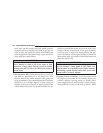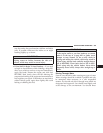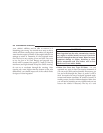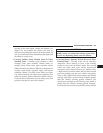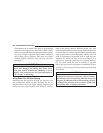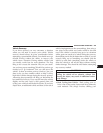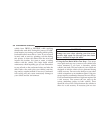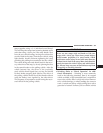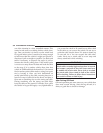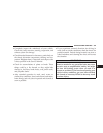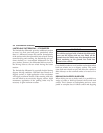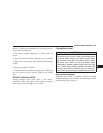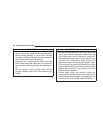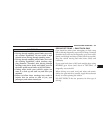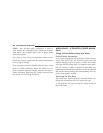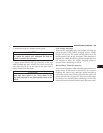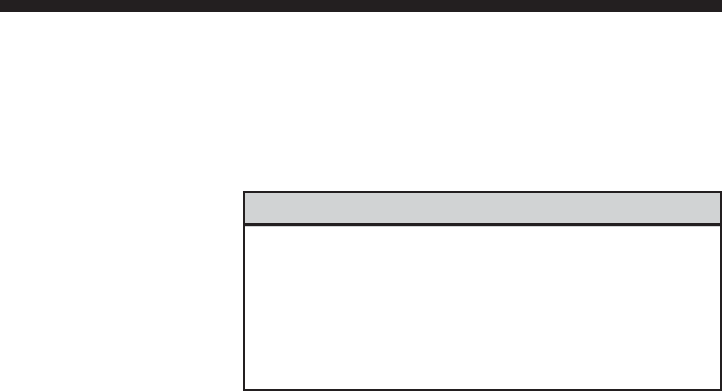
out of the situation in a slow controlled manner. This
control works well for avoiding further vehicle dam-
age. Once you decide it is time to use the winch look
for a good anchor point. It needs to be strong enough
to hold more than the vehicle’s weight and provide a
direction of pull as straight as possible. Use block and
tackle if necessary to improve the angle of pull or
increase the winch’s pulling force. If the anchor point
is a tree use a strap around its base and hook the cable
to the strap. If it is another vehicle, then place that
vehicle in PARK and block the front tires. If you cannot
find an anchor point within reach try using your spare
tire by burying it. Once you have determined an
anchor point hook up the cable, ensuring there are a
least five wraps of cable left on the drum, and place a
floor mat or something else over the strung out cable.
Placing something over the strung out cable helps
keep the cable on the ground if it breaks. Next, place
the vehicle in 1st gear and apply a very light throttle as
you power the winch in. Be careful not to allow slack
in the cable as you recover the vehicle. Do not try to
guide the cable into the drum. If it starts to bunch up
on one end, let it. You can re-spool the cable after-
wards. Never use a winch cable as a tow strap and
always stand back while winching.
WARNING!
Winch cables are under high tension when in use and
can become a projectile if they fail. Never stand over
or straddle the winch cable. Never jerk or overload
the winch cable. Never stand in front of the vehicle
while winching. Failure to follow these instructions
can result in serious or fatal injury.
After Driving Off-Road
Off-road operation puts more stress on your vehicle than
does most on-road driving. After driving off-road, it is
always a good idea to check for damage.
302 STARTING AND OPERATING



